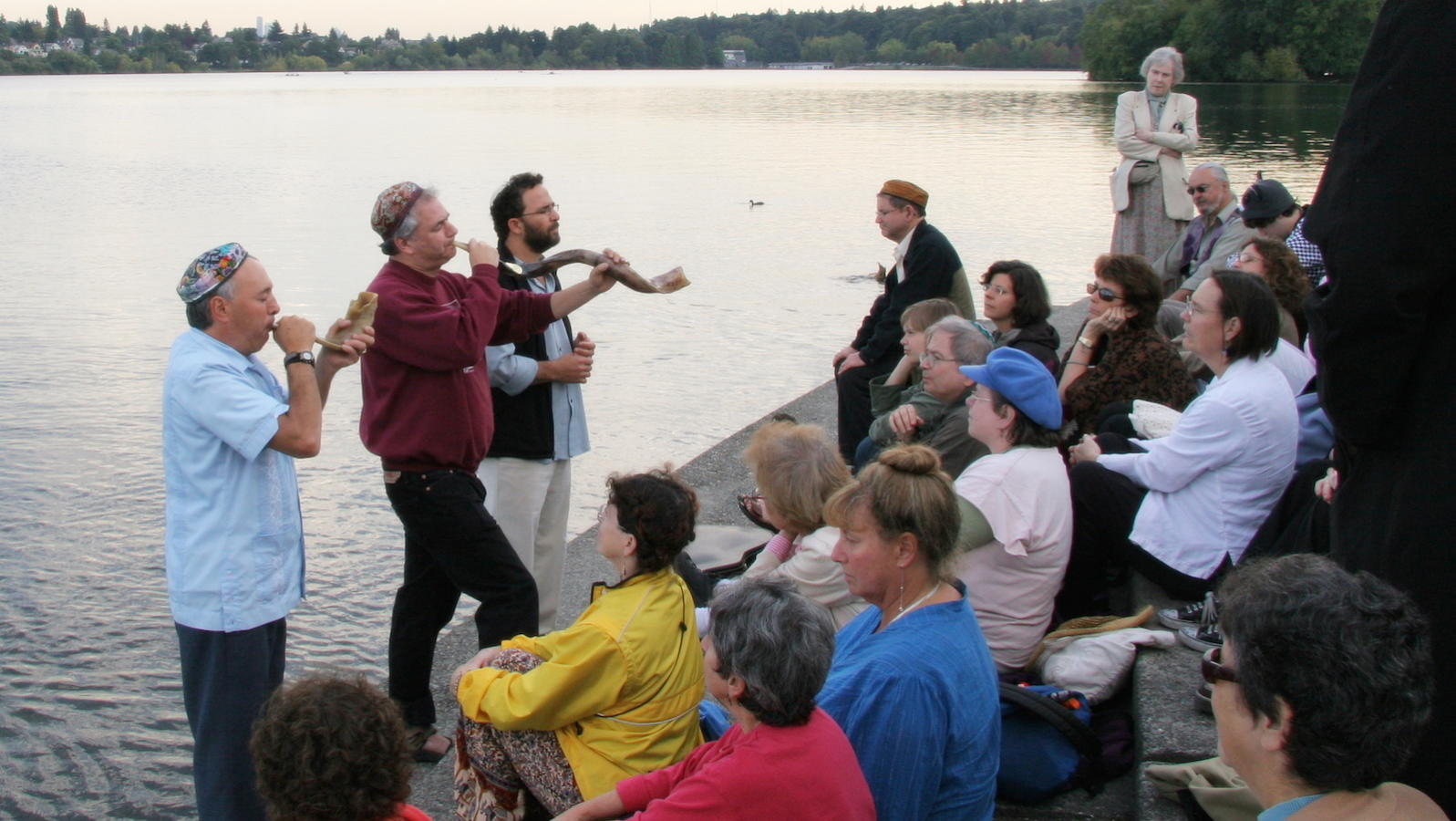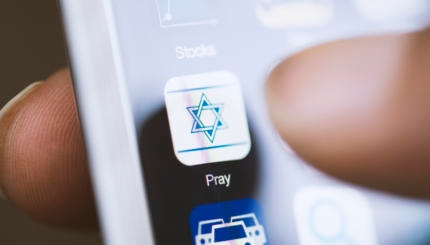Here are some important Hebrew words and terms you may encounter over the High Holiday season.
Akedah — Pronounced ah-keh-DAH. Literally “binding,” the Akedah refers to the biblical story of the binding of Isaac, which is traditionally read on the second day of Rosh Hashanah.
Chag sameach — Pronounced KHAG sah-MAY-akh. Literally “happy holiday,” a common greeting on Rosh Hashanah and other Jewish holidays.
Elul — Pronounced el-OOL (oo as in food). The final month of the Jewish calendar, it is designated as a time of reflection, introspection and repentance.

Help us keep Jewish knowledge accessible to millions of people around the world.
Your donation to My Jewish Learning fuels endless journeys of Jewish discovery. With your help, My Jewish Learning can continue to provide nonstop opportunities for learning, connection and growth.
Het (also chet) — Pronounced KHET (short e). Sin, or wrongdoing
L’shana tovah u’metukah — Pronounced l’shah-NAH toe-VAH ooh-meh-too-KAH. A Hebrew greeting for the High Holiday season that means, “For a good and sweet year.”
Mahzor (also machzor) — Pronounced MAHKH-zohr. Literally “cycle,” the mahzor is the special prayer book for the High Holidays, containing all the special High Holiday liturgy
Selichot (also Selihot) — Pronounced slee-KHOTE. Literally “forgivenesses”, selichot are prayers for forgiveness. Selichot refers to two related types of penitential prayers. The first are the prayers that are customarily recited daily at morning services during the month of Elul. This is also the name of the service that takes place late at night on the Saturday preceding Rosh Hashanah and consists of a longer series of these penitential prayers.
Shofar — Pronounced shoh-FAR or SHOH-far (rhymes with “so far”). The ram’s horn that is sounded during the month of Elul, on Rosh Hashanah, and at the end of Yom Kippur. It is mentioned numerous times in the Bible, in reference to its ceremonial use in the Temple and to its function as a signal-horn of war.
Tashlich (also Tashlich) —Pronounced TAHSH-likh. Literally “cast away,” Tashlich is a ceremony observed on the afternoon of the first day of Rosh Hashanah, in which sins are symbolically cast away into a natural body of water. The term and custom are derived from a verse in the Book of Micah (Micah 7:19).
Teshuvah (also teshuva) — Pronounced tih-SHOO-vuh. Literally “return”, teshuvah is often translated as “repentance.” It is one of the central themes and spiritual components of the High Holidays.
Tishrei — Pronounced TISH-ray. The first month in the Hebrew calendar, during which Rosh Hashanah, Yom Kippur and Sukkot all occur.
Tzom Kal — Pronounced TZOHM KAHL. This greeting for Yom Kippur (and other Jewish fast days) means “may you have any easy fast.”
Unetaneh Tokef — Pronounced ooh-nuh-TAH-neh TOH-keff. Literally “we shall ascribe,” a religious poem recited during the Musaf (additional service ) Amidah that is meant to strike fear in us.
Yamim Noraim — Pronounced yah-MEEM nohr-ah-EEM. Literally “Days of Awe”, a term that refers to the High Holiday season. Sometimes it is used to refer to the 10 days from Rosh Hashanah through Yom Kippur, which are also known as the Aseret Yimei Teshuva, or the 10 Days of Repentance.
Yom Tov — Pronounced YOHM TOHV or YON-tiff. This is a general term for the major Jewish festivals.
Want to learn more about the High Holidays? Sign up for a special High Holiday prep email series.
Rosh Hashanah
Pronounced: roshe hah-SHAH-nah, also roshe ha-shah-NAH, Origin: Hebrew, the Jewish new year.

Help us keep Jewish knowledge accessible to millions of people around the world.
Your donation to My Jewish Learning fuels endless journeys of Jewish discovery. With your help, My Jewish Learning can continue to provide nonstop opportunities for learning, connection and growth.
Sukkot
Pronounced: sue-KOTE, or SOOH-kuss (oo as in book), Origin: Hebrew, a harvest festival in which Jews eat inside temporary huts, falls in the Jewish month of Tishrei, which usually coincides with September or October.

Help us keep Jewish knowledge accessible to millions of people around the world.
Your donation to My Jewish Learning fuels endless journeys of Jewish discovery. With your help, My Jewish Learning can continue to provide nonstop opportunities for learning, connection and growth.
teshuvah
Pronounced: tuh-SHOO-vah, (oo as in boot) Origin: Hebrew, literally “return”, referring to the “return to God” teshuvah is often translated as “repentance.” It is one of the most significant themes and spiritual components of the High Holidays.

Help us keep Jewish knowledge accessible to millions of people around the world.
Your donation to My Jewish Learning fuels endless journeys of Jewish discovery. With your help, My Jewish Learning can continue to provide nonstop opportunities for learning, connection and growth.
shofar
Pronounced: sho-FAR or SHO-far, Origin: Hebrew, a ram’s horn that is sounded during the month of Elul, on Rosh Hashanah, and on Yom Kippur. It is mentioned numerous times in the Bible, in reference to its ceremonial use in the Temple and to its function as a signal-horn of war.

Help us keep Jewish knowledge accessible to millions of people around the world.
Your donation to My Jewish Learning fuels endless journeys of Jewish discovery. With your help, My Jewish Learning can continue to provide nonstop opportunities for learning, connection and growth.



